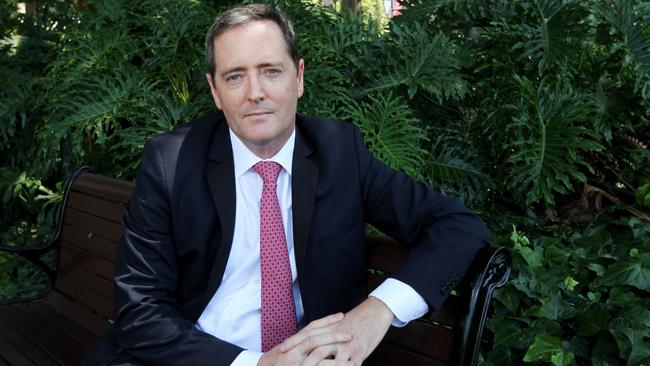Association of Superannuation Funds of Australia seeks $5m tax concession cap
The Association of Superannuation Funds of Australia is calling on the federal government to bring in a $5m cap on the amount of money attracting tax concessions in superannuation.

The Association of Superannuation Funds of Australia is calling on the federal government to bring in a $5m cap on the amount of money attracting tax concessions in superannuation.
In its pre-budget submission, it is also calling for superannuation to be paid at the same time as wages and for the Australian Taxation Office to launch a crackdown on employers who consistently underpay superannuation to their employees.
ASFA estimates introducing a $5m cap on the amount of money that can attract tax concessions in super would bring in an extra $1.5bn a year. It says there are some 11,000 fund members with balances over $5m.
“A balance of $5m in concessionally taxed superannuation cannot reasonably be justified as necessary to support a comfortable lifestyle in retirement,” it says.
“Having 11,000 people with an excess of $5m in their superannuation doesn’t seem in the best interests of equity and the long-term sustainability of the system,” said ASFA chief executive Martin Fahy. “Particularly when we have these other challenges about reducing the gender cap in superannuation and improving the system for low-income earners.”
ASFA is also calling on the government to reduce the income level at which super contributions attract 30 per cent tax, instead of 15 per cent. It says the income level when the Division 293 tax rate applies, which is currently at $250,000 a year, should be lowered to $200,000 (the top marginal tax rate income level plus $20,000).
Mr Fahy said revenue generated by taxing money in super funds above $5m at the marginal tax rate and a lower threshold for the Division 293 tax could be used to fund changes to improve concessions for lower-paid workers.
It argues that this should include the payment of super on commonwealth government paid parental leave and increasing the upper threshold for the low income super tax offset.
ASFA is arguing that people with balances in super above $5m should have the income on those balances taxed at the highest marginal rate of 45 per cent instead of the current 15 per cent.
ASFA’s calls follow similar suggestions by industry super funds for a $5m cap on super.
Health and community services fund HESTA in its pre-budget submission last week called for a $5m cap on super that could attract tax concessions. It argues the super tax settings are “heavily skewed towards high-income earners and high-net-worth individuals”.
With ASFA and other funds supporting the introduction of a $5m cap on super, the question is whether the government will move on it in the May budget.
Mr Fahy said the issue could be considered in the context of plans by the government to introduce legislation to define the purpose of superannuation. “If we can successfully and efficiently address the purpose of super then there are certain conclusions which will fall under that,” he said. “One of the conclusions is what would be the appropriate settings for very large super balances?”
Mr Fahy said Australia had the best defined contribution super system in the world at a time when other countries were wrestling with issues of funding retirements for an ageing population.
He said the settings for the system, including the move of super guarantees from 10.5 per cent to 12 per cent by July 2025, were good. But there needed to be changes to improve the system and make it fairer. He said ASFA wanted to see more enforcement action by the ATO on employers who underpay super contributions. The ATO had estimated there was a “superannuation guarantee gap” of $3.4bn in super paid, or 4.9 per cent of total super guarantee contributions a year.
He said underpayment was more likely to hit women and lower-paid workers and was more frequent in cases where super was paid quarterly, which was often the case with small employers.
ASFA is arguing that the payment of super with wages would make it easier for employees to monitor their super payments.
It argues that standard payroll systems, with employers now making use of the Single Touch Payroll, make it much easier to include super payments with wages.
ASFA argues the ATO should provide more reporting and analysis on the underpayment of super and should be ready to take swift action to ensure employers, including repeat and significant offenders, pay their super guarantee contributions on time.





To join the conversation, please log in. Don't have an account? Register
Join the conversation, you are commenting as Logout